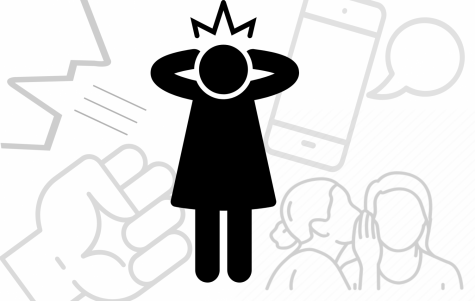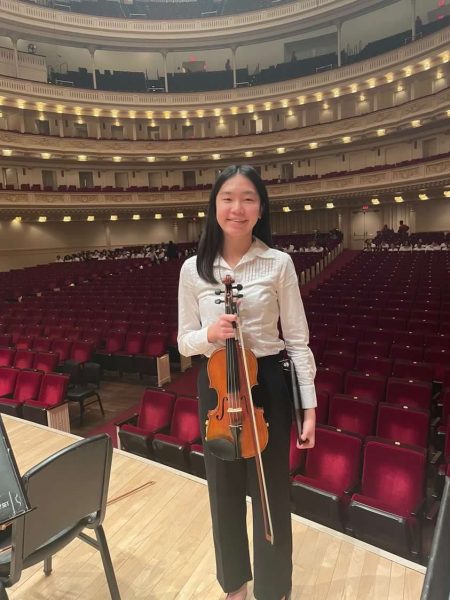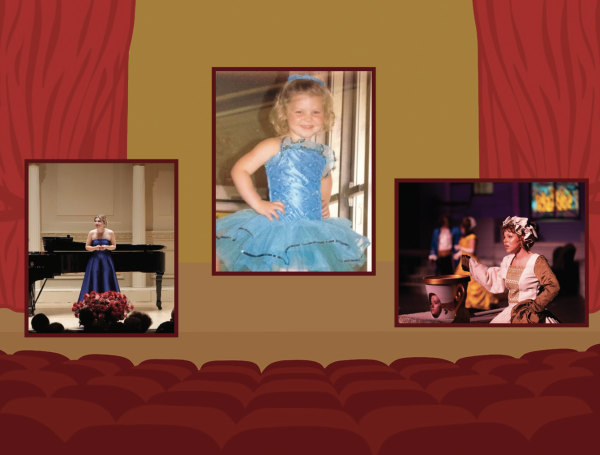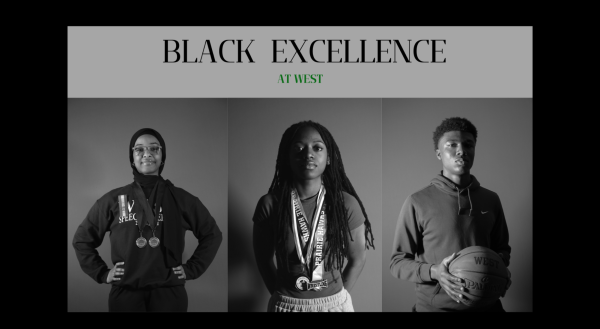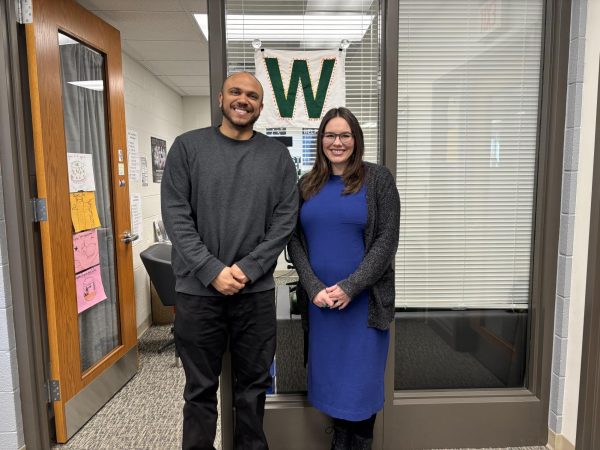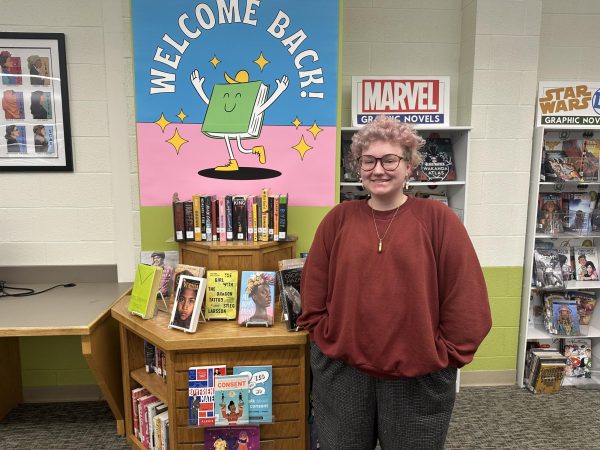Budding ombuds
The ICCSD’s newly-created ombudsperson position provides personal and accessible conflict resolution, giving students an advocate within the district complaint process.
Janet Abejo-Parker is six months into her work as the ICCSD’s ombudsperson, a new role within the school district.
It can be challenging to navigate a situation of conflict, especially when it is unclear whom to approach for help. Current ICCSD ombudsperson Janet Abejo-Parker recognized this when she was investigating and resolving discrimination complaints while working as a senior investigator and mediator at the Cedar Rapids Civil Rights Commission. Abejo-Parker felt that the formal protocol required of her was limiting and found filing formal complaints to be unwelcoming and impersonal. She soon discovered using mediation for conflict resolution to be much more genuine.
“It can be very intimidating filing a formal complaint,” Abejo-Parker said. “It’s not very warm, whereas mediation feels much warmer, like you’re really focusing on … building relationships so that you can have resolutions for everyone.”
It can be very intimidating filing a formal complaint. It’s not very warm, whereas mediation feels much warmer, like you’re really focusing on … building relationships so that you can have resolutions for everyone.
— Abejo-Parker
In the summer of 2020, ICCSD school board members also recognized that the district’s formal complaint process needed to be reevaluated.
“People didn’t always feel that there was an advocate for the process or for them,” said Superintendent Matt Degner. “They didn’t always know how to navigate [through the conflict].”
At the July 2020 school board meeting, the district’s leadership team proposed the creation of an ombudsperson, or third-party mediator, for the ICCSD.
“If I had a concern, who do I go to? Do I have confidence that that concern is going to be treated seriously by the person?” Degner said. “[An ombudsperson] was really a way for us to try to bridge a solution to that problem.”
The new position was designed to create a safe space where people in the district could informally and confidentially voice their concerns, such as those regarding bullying or harassment, and have confidence that they are receiving an impartial perspective on their options for resolution. Abejo-Parker, a trained mediator holding a master’s degree in psychology, was the ideal candidate.
“[I] want to make sure that [students] understand my role, know that I’m here, anytime they have a concern or conflict that they want to talk through,” Abejo-Parker said.
The only scenarios in which Abejo-Parker cannot help are when she has a conflict of interest or if one of the parties decides against her involvement.
The conflicts Abejo-Parker takes on include those among students, between students and teachers, and those involving a single individual who has inflicted harm on a larger group.
“Anytime there’s a breakdown in communication or lack of trust, that’s when I like to be helpful,” Abejo-Parker said. “They’re given that respectful, safe environment … I’m this informal resource that you just talk to confidentially.”
Another component of Abejo-Parker’s work is that she reports trends among complaints to Degner.
“I’m reporting those trends or any serious concerns to the district for systemic issues, recommending any positive changes,” Abejo-Parker said.
Abejo-Parker is not present to defend the district. To preserve her neutrality, Abejo-Parker is separate from all district departments and reports exclusively to Degner. To symbolically demonstrate her detachment from the ICCSD, Abejo-Parker has two offices, one at the central district office and the other being a separate location at the Kirkwood Regional Center in Coralville.
“If someone has a complaint and a concern about the district, they may not feel comfortable going to the school and they might not feel comfortable going to the central office,” Abejo-Parker said. “This is a much more confidential, separate environment.”
Abejo-Parker has completed trauma-informed training, which she keeps in mind so she can be considerate of students who may have difficulty recounting their testimonies.
“[I provide] trauma-informed care of offering them something to drink when they first get there, asking if they need to do any self-care right away,” Abejo-Parker said.
She also tries to make her room welcoming and warm for meetings.
“When it feels very cold, people shut off or don’t feel comfortable,” Abejo-Parker said.
When pursuing resolutions, Abejo-Parker typically carries out one of three options.
The first option consists of a meeting with Abejo-Parker to address a concern. During this meeting, Abejo-Parker often provides coaching on conflict resolution practices, so that those with a concern feel comfortable potentially proceeding without her.
“I might say, ‘Do you want to run through it together? How would you bring it up? Let’s do a roleplay … what would you say to them?’” Abejo-Parker said.
The second option involves Abejo-Parker mediating the situation, or directly working with both of the opposing parties experiencing the conflict, instead of merely outlining options. Abejo-Parker finds that her resources can be especially helpful in cases where tensions are high or there is a lack of trust between conflicting parties.
“[It’s helpful] to have that person to bring down the emotions and neutralize the situation. Usually, they’re both only talking. They’re not able to hear each other,” Abejo-Parker said.
[It’s helpful] to have that person to bring down the emotions and neutralize the situation. Usually, they’re both only talking. They’re not able to hear each other.
— Abejo-Parker
In addition to mediation, Abejo-Parker provides an alternative practice, typically utilized by larger groups: restorative circles. With restorative circles, those guilty of harm enter the circle admitting their wrongdoing in hopes of resolution.
Through using these different methods, Abejo-Parker believes every case is unique, and resolutions are not universal and should be determined situationally.
The third option entails Abejo-Parker addressing resolutions by connecting students to the channels required to levy a formal complaint. To do so, Abejo-Parker works with Eric Howard, the ICCSD’s Director of Equity. After Abejo-Parker connects students who want to file a formal complaint with Howard, Howard then carries out an investigation.
Howard and Abejo-Parker have worked closely on several cases this year, with some having simpler resolutions and others still being an ongoing process.
Howard sees Abejo-Parker as an asset who is a perfect fit for the responsibility of ombudsperson.
“She is very skilled at knowing how to have difficult conversations without ruffling feathers,” Howard said. “She will push you on issues, not from a place of malice, but to come to clarification.”
Degner also praises Abejo-Parker’s skill as an ombudsperson, citing her dedication and thoroughness.
“I would describe her as very approachable, accessible and diligent to her work,” Degner said.
He highlighted how unique an opportunity it is to have an ombudsperson as a resource within a school district.
“We think we’re the only [district with an ombudsperson] in Iowa. It’s progressive for us, and we’re proud,” Degner said.
Although Abejo-Parker feels honored and fulfilled as ICCSD’s ombudsperson, undertaking the position has been challenging.
“Six months in the role, I’m really loving the work. It is challenging [being a] brand new person [in a] brand-new position in the district,” Abejo-Parker said.
Abejo-Parker admits that remaining neutral can also be difficult, which she combats by employing a multi-partial lens.
“I think [multi-partial] means that instead of saying you’re neutral … you’re saying I have lots of feelings about what’s going on,” Abejo-Parker said. “I’m trying to understand everyone’s perspective … so we can collaboratively come together and understand each other.”
Another aspect of the challenge is how students’ conflicts can be emotional and weighty.
“When I first started this, I was taking that home with me. I was having a hard time sleeping,” Abejo-Parker said.
She has since navigated establishing a better balance between her job as an ombudsperson and being able to decompress outside of work.
“It’s very rewarding,” Abejo-Parker said. “You really have to be there for people 100%, [but] also know how to unplug and let go of some of that as well.”
As she approaches this new role, Abejo-Parker has outlined a few top priorities she wishes to accomplish.
“I’m working on some strategic goals … [such as] advertising the role, educating all district constituents on my office and my role and what I do,” Abejo-Parker said. “I think if people don’t even know about me, I can’t do my job.”
I think if people don’t even know about me, I can’t do my job.
— Abejo-Parker
Abejo-Parker emphasizes the importance of providing quality service to students in need of support. She also feels it is her responsibility as an ombudsperson to create an equitable environment in order to build trust within the ICCSD community.
“I hope to feel that [students] are supported and the district has a resource that is there to go to if they don’t know where to go,” Abejo-Parker said. “The whole point of an ombuds is to make an organization and environment feel more fair and inclusive.”
Your donation will support the student journalists of West High School. Your contribution will allow us to purchase Scholarship Yearbooks, newsroom equipment and cover our annual website hosting costs.
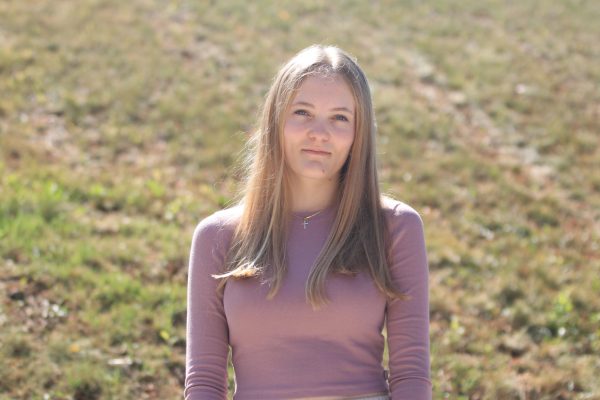
(she/her) Lilly Graham is a senior at West, and this is her third year on staff. Lilly is the Managing Editor for the print edition. Outside of school,...
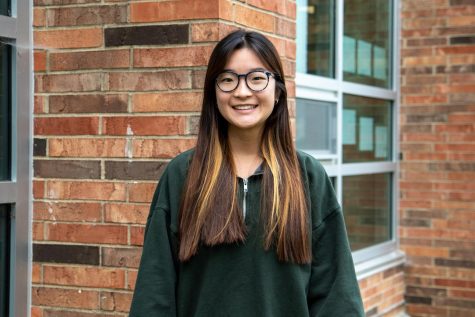
(she/her) Soomin Koh is a senior at West, and it is her second year on print publication staff as a co-profiles editor. In her free time,...
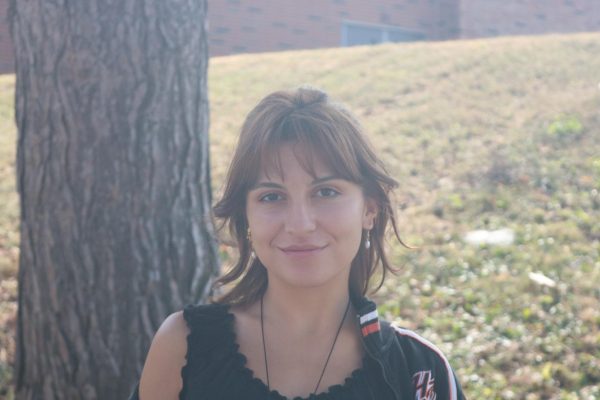
(they/she) Defne Bayman is a senior this year, and has been on Print for two years and joined Web this year. They are the communications manager for all...





